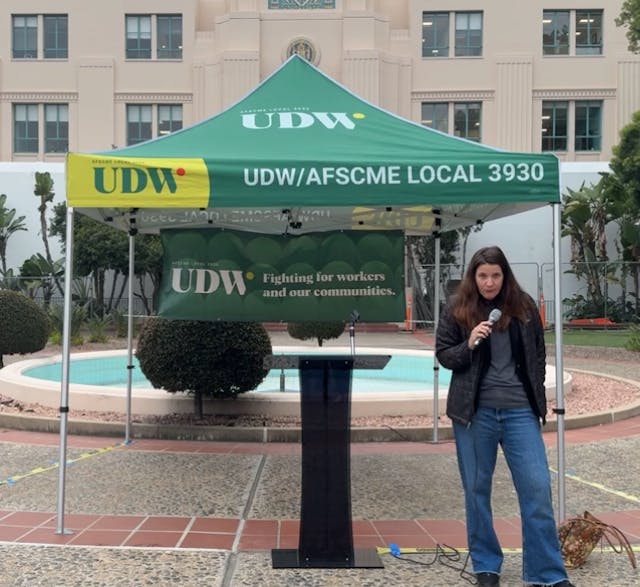Colombian Peace Accord is Rejected: Now What?
Alexandra Florez lives in Chula Vista, but she grew up in Bogotà, Colombia. She and her family left their hometown years ago when violence was rampant in the country and kidnappings became far too common. She was not surprised to learn that Colombia’s peace accord was narrowly rejected by voters. In fact, she was somewhat relieved. The peace deal would have put an end to a 52 year war between Colombia’s government and the country’s rebel forces known as the FARC (Revolutionary Armed Forces of Colombia). But apparently the wounds of war are still fresh and the scars still deep. The difference was narrow, but it spoke volumes: 50.2 percent of voters rejected the peace agreement, while 49.8 percent voted in favor of it.
“My opinion is reflected in the results,” says Florez who left Bogota with her parents and sibling before moving to the United States. “I was in favor of the peace agreement, but in a way I was also against it. All Colombians want peace, but the terms of the deal would basically hand Colombia over to the rebels.”
Ironically, the accord was already seen as a given. In fact, on September 26th, President Juan Manuel Santos signed the accord with FARC leader Timoleon “Timochenko” Jimenez after four years of back and forth negotiations. The ballot was put to a vote as a mere formality. The results however, left Colombia’s government stunned and international leaders speechless.
“You don’t sign a peace agreement with your friends, but with your enemies,” noted famous Colombian writer and professor, Mario Mendoza Zambrano. In a video that went viral just days before the agreement was put to a public vote, he added: “We have a unique opportunity to vote for peace. Many future generations will not have an opportunity like this one.”
Even so, this argument of leaving the past in the past was more easily said than done.
Under the terms of the now rejected agreement, FARC fighters would have handed over their weapons to United Nations inspectors. To reintegrate as law abiding citizens, they would be required to take part in “acts of reparation” including clearing land mines and fixing some of the infrastructure they damaged. The rebels would also be given at least 10 seats in Congress and would be recognized as an official political party. Perhaps the most controversial point is that FARC fighters would avoid prison, if they admit their crimes and openly ask their victims for forgiveness. In a country where FARC rebels are often equated to violence, kidnappings and war, many Colombians believe the agreement ignores justice. The 52 year conflict has displaced millions, leaving more than 220,000 people dead. It’s a painful past, that’s not easily forgotten or even more importantly—forgiven.
“I grew up hearing about kidnappings and murders,” recalls Florez who is now 31 years old. “I obviously want peace, but we can’t forget about justice. I now live in the U.S, but my grandparents and aunts still live in Colombia. It’s not easy to forget that most of the FARC’s victims were civilians who were kidnapped and held for ransom.”
This view has also been echoed by some Colombian leaders who oppose the terms of the peace agreement. Interestingly, one of the most prominent voices against the deal is Colombia’s former president Alvaro Uribe who served from 2002 to 2010. A senator from that same party, Paloma Valencia, noted: “The rebels will spend zero days in prison; they will be rewarded with political representation. This breaks the rule of law.”
Among its demands, Uribe’s party wants FARC rebels who are found guilty of crimes to be barred from running for public office. There is also an underlying fear that if rebels are given an official voice in Congress, it could lead Colombia to leftist ideologies that have crippled other Latin American countries like Cuba and Venezuela.
To understand the peace agreement and all the emotions it triggers, one must first understand how and why the FARC came about in the first place. The armed group was founded in 1964 to fight against Colombia’s growing inequality. Inspired by a Communist ideology, the Marxist group was organized by farmers who felt left out of the political process and its economical gains. Over time, the armed rebels turned to kidnappings and drug trafficking to fund their activities. An estimated 7,000 FARC fighters are currently active with roughly 8,000 civilians lending logistical support.
Because the peace accord was rejected by voters it’s essentially invalid. Colombia’s government and FARC leaders will have to start anew and modify the terms of the 297 page peace deal. President Santos has vowed to do so, by saying that he “won’t give up.” Despite the rejection of the accord, the FARC’s leader, commonly referred to as Timochenko, has also expressed his interest in seeking an agreement where all parties feel validated.
In the meantime, a ceasefire between both groups is still in effect and negotiators have been called to start a second round of peace talks. Colombia’s government seems eager to reach a peace agreement, the question is, are Colombians ready? Feelings, just like the ballot results, seem mixed.
“In a way, I would like to start fresh and have peace,” admits Florez. “But we can’t give the FARC everything it wants. We’ll just have to wait and see what happens. We all want peace, but it seems like we don’t agree on what road will take us there.”





